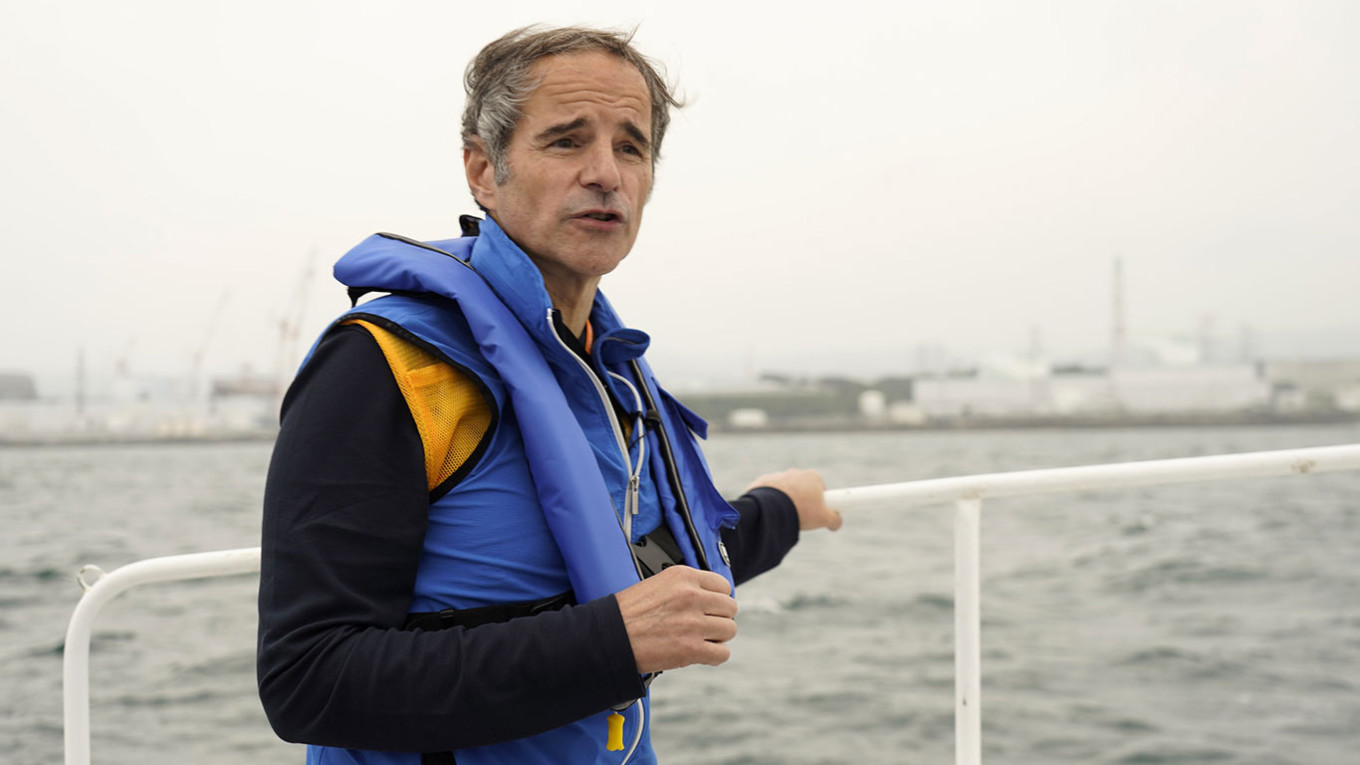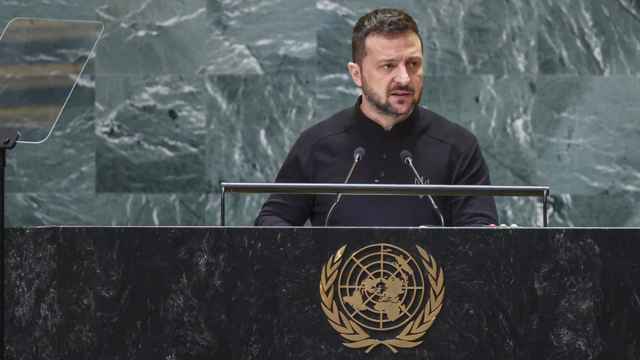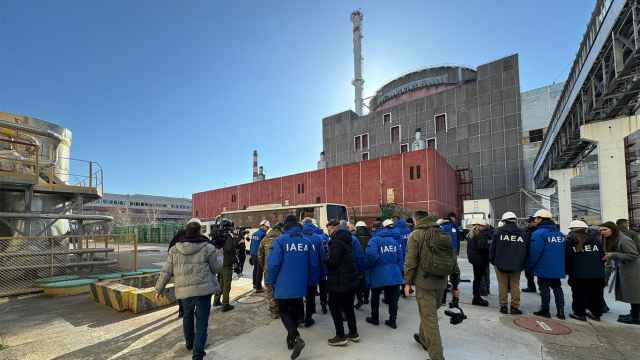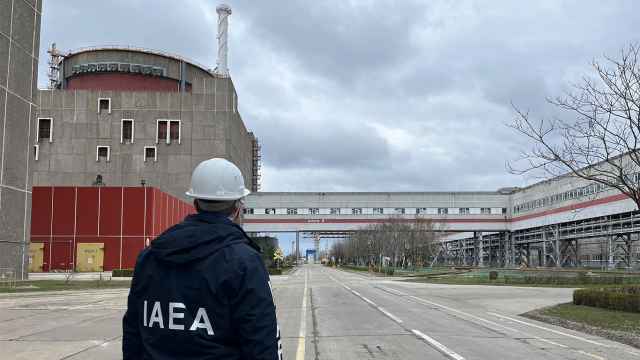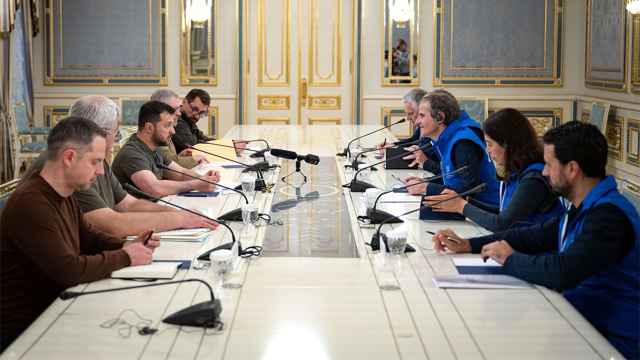The UN's nuclear watchdog is "making progress" on inspecting several parts of the Zaporizhzhia nuclear plant in Ukraine after claims it had been mined, the head of the International Atomic Energy Agency (IAEA) Rafael Grossi said Friday.
Ukraine and Russia have accused each other of planning a provocation at the site, raising alarm over risks of a radioactive disaster at Europe's largest nuclear plant.
Earlier this week, Grossi said the watchdog had requested access to the rooftops of two reactor units, as well as parts of the turbine halls and cooling systems.
"I think we are making progress," he said Friday in Tokyo.
"We have been able to complete the tours of the cooling ponds and other places," Grossi said, adding they had "not seen any indications of explosives or mines."
He noted that IAEA officials had not yet been able to visit the facility's rooftops.
"I'm pretty confident that we will get this authorization," Grossi added.
"This is a combat zone, it's an active warzone, so sometimes it may take a day or two to get the authorizations."
On Tuesday, Kyiv accused Moscow of planning "dangerous provocations" at the site, while Russia has accused Ukraine of similar plans.
The Ukrainian military claimed that "external objects similar to explosive devices were placed on the outer roof of the third and fourth reactors" at the site.
Fears over the plant have persisted throughout the war in Ukraine and have been exacerbated by the destruction of the Kakhovka dam — which provided cooling water for the plant.
Grossi said the IAEA had contingency plans for various scenarios at the plant and "we do have a clear assessment of what emergency preparedness and response mechanisms should be in place should something occur."
A Message from The Moscow Times:
Dear readers,
We are facing unprecedented challenges. Russia's Prosecutor General's Office has designated The Moscow Times as an "undesirable" organization, criminalizing our work and putting our staff at risk of prosecution. This follows our earlier unjust labeling as a "foreign agent."
These actions are direct attempts to silence independent journalism in Russia. The authorities claim our work "discredits the decisions of the Russian leadership." We see things differently: we strive to provide accurate, unbiased reporting on Russia.
We, the journalists of The Moscow Times, refuse to be silenced. But to continue our work, we need your help.
Your support, no matter how small, makes a world of difference. If you can, please support us monthly starting from just $2. It's quick to set up, and every contribution makes a significant impact.
By supporting The Moscow Times, you're defending open, independent journalism in the face of repression. Thank you for standing with us.
Remind me later.


